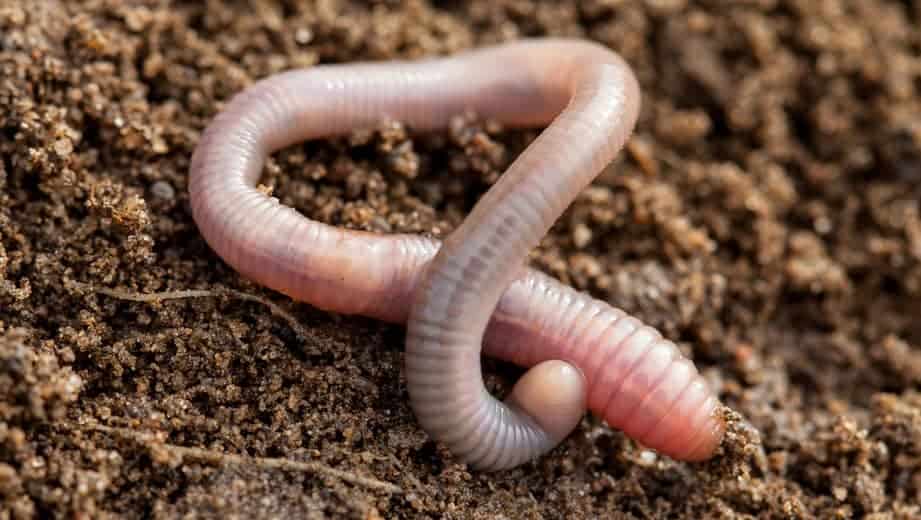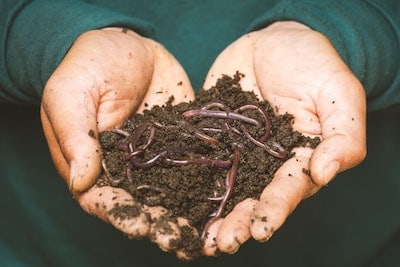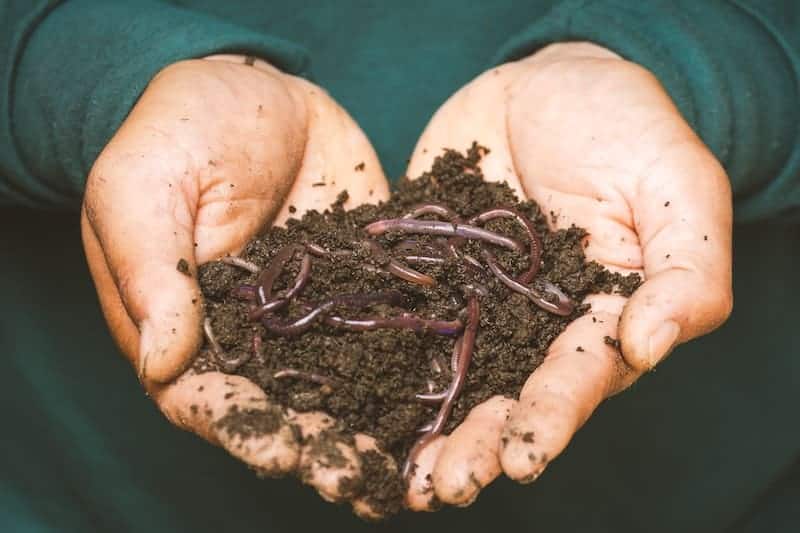What Do Worms In Your Yard Mean?
Summertime is known for many great things, barbeques, pool parties, and beach days, to name a few. However, along with the good comes the…not so great. Things like mosquitos, ants, worms, and other pests seem to take over the patio, yard, and any other area they can access.
So, why are there so many worms in my yard? Worms are attracted to healthy soil that contains high levels of organic materials. Having earthworms in your yard simply means that your soil is healthy and supports life of all kinds. In fact, any yard that is properly maintained should have its fair share of worms!
One of the most common critters that make an appearance specifically in the summer months around our house is worms. As a kid, I always enjoyed going outside after a rainstorm to see what seemed like hundreds of worms on your driveway – as an adult, the feeling just isn’t the same. As on the one hand, it’s good if you have some plantings in your backyard, your best greenhouse kits, and other planting stuff, then in this case it will only benefit you. But on the other hand, for people who have a pool, a grill, and a swing in their backyard, this is a whole problem!
If worms are a sign of healthy soil, does this mean that they support the growth of a luscious lawn? Are there instances where you should try to eliminate the worms from your yard? How can you attract worms to your yard to improve the quality of your soil?
In this post, we will answer all of these pertinent questions as well as share important information regarding the earthworms that call your yard home.
What Attracts Worms to Your Yard?
As mentioned previously, earthworms are attracted to healthy soil that contains high levels of organic materials. Soil that has a neutral pH level and contains proper nutrients will attract worms to your yard. Worms also enjoy moist soil, you are unlikely to find worms thriving in your yard if you live in an area that experiences seasons of drought.
If you recently worked with a local construction company to complete a project in your yard, you may notice an increase in your worm population after disrupting their habitats.
In addition to these natural attractions, there are several things you can add to your soil to attract worms to your yard if you choose to do so. While they may seem like a nuisance, finding worms in your yard should actually be an encouraging sign that you are cultivating and maintaining healthy soil!
 Types of Worms In Your Yard
Types of Worms In Your Yard
Are all worms the same? They certainly look pretty similar! However, there are actually several types of worms that you may find in your yard. Most types of worms that you will find in your yard will be beneficial to the overall health of your lawn.
Some species, however, are considered invasive depending on the area in which you live. Because of this, you must learn to identify the various types of worms you may encounter so that you can react appropriately.
Each species of earthworm falls under one of three types of worms – epigeic worms, endogeic worms, and anecic worms. Each type of worm serves a specific purpose in our ecosystem as well as the health of your yard.
Epigeic Worms
Epigeic worms, for example, live above soil level. These surface-dwelling worms are quite efficient in the decomposition of natural materials, making them an excellent addition to any compost pile or garden!
Endogeic Worms
Endogeic worms live below the ground. They are rarely seen on the surface unless they are removed from their habitat by man or predator. Endogeic worms are also the earthworms you are likely to see on your driveway after a storm! The way endogeic worms burrow in the soil helps to aerate the soil, creating a healthy environment for plants and other animals.
Anecic Worms
The third type of worm, the anecic worm, lives up to six feet below soil level. This type of worm burrows into the mineral layers, collecting food from the soil above to take back underground to their extensive habitats. Anecic worms are perhaps the most common type of earthworm and are most often used as fishing bait.
Earthworm Species
Within the three types of worms, there are countless species. Some of the most common earthworm species that you are likely to find in your yard include the following:
 Common Earthworm
Common Earthworm
- Redhead Worm
- European Nightcrawler
- Brandling Worm
- Kentucky Earthworm
- Gray Worm
- Composting Worm
These are, of course, just a few of the many species of worm you may encounter. If you believe you have an invasive infestation of worms, it is best to contact your local pest control or lawn maintenance expert to identify and intervene if necessary.
Do Worms Hurt or Harm Your Grass?
From what we have learned, it seems as if the presence of earthworms in your yard should be welcomed, right? While earthworms do serve an important purpose in both the health of your soil and our ecosystem as a whole, there are some situations where they may do more harm than good.
Earthworm Castings
More than noticing the actual worms themselves, homeowners are more likely to notice their castings. Earthworm castings are left around your yard when the worm migrates to the surface. During their trips to the surface, worms leave small mounds of their excrement, also known as castings.
Castings are actually incredibly beneficial to your lawn! The excrement is highly nutritious and packed with the remains of soil and natural matter that has been digested by the worms. However, castings are not the most aesthetically pleasing lawn decor.
Typically about the size of a quarter, earthworm castings are not noticeable in small numbers. However, when you have lots of worms in your yard, these small mounds can become a problem. Castings can create a bumpy surface that not only makes mowing a chore but ruins both the look and feel of your lawn.
Earthworms Attract Other Pests
In addition to leaving their castings behind, a large presence of earthworms in your yard can lead to an increase in other, more destructive, pests. Moles, for example, feed primarily on grubs and can quickly destroy the appearance of your lawn by leaving behind large holes!
Overall, earthworms are beneficial to the health of your yard. However, in some situations, it may be wise to combat your worm population through natural measures.
Reasons to Share Your Yard With Worms
There are several important reasons to share your yard with worms! Earthworms have been said to be one of the most important contributors to our ecosystem. Worms serve several important functions such as improving the nutrients in the soil, aiding in the decomposition of natural matter, and even improving the structure of the soil through aeration!
These functions all contribute to a healthy, green lawn and impressive landscaping – something that every homeowner craves.
Getting Rid of Worms in Your Yard
Unless you have an infestation of worms, there is likely no reason to get rid of them. If worms seem to be causing a problem in your yard, first consult a pest control or lawn maintenance expert to eliminate other culprits such as moles, grubs, or even rabbits that leave behind similar signs.
There are currently no products designed to get rid of worms as they are an important part of our ecosystem. However, since worms are attracted to moist soil, one solution would be to ensure that you are not overwatering your yard, creating an ideal environment for worms.
How to Attract Worms to Your Yard
Do you have a new appreciation for these creepy crawlies? Worms are important to the health of our lawn, gardens, and world as a whole! Some homeowners are so convinced of this fact that they even purchase worms to add to their soil!
Are you looking to attract more worms to your yard? Consider choosing an organic fertilizer that adds important nutrients to the soil. This step, in addition to making sure your soil is moist and properly aerated, will encourage worms to call your yard home.

